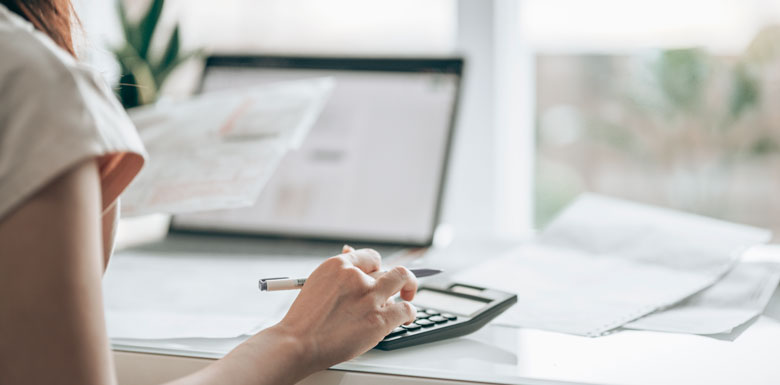5 filing tips for small businesses and sole traders
 In this article
In this article
Key dates and deadlines
Tax declared using self-assessment is based on your income from the last financial year - not on the calendar year.
The tax year runs from 6 April to 5 April, and your tax return will be due the following January.
The self-assessment deadlines for your 2023-24 return are as follows:
- 5 October 2024: deadline to register for self-assessment for the first time
- 31 October 2024: paper tax return deadline
- 31 January 2025: online tax return deadline
- 31 January 2025: tax payment deadline for 2023-24 tax owed. If you pay your tax by payments on account you may have already made payments towards this bill.
Find out more: self assessment online returns explained
Other dates to remember
- 30th December: if your tax bill is less than £3,000 and you also have earnings under PAYE, you can choose to have the tax collected from your pay packet over the next year
- 31st January: first payment on account due. If this is your first year of self-assessment, this will be made up of all the tax due from the previous tax year, and half the predicted tax bill for the current tax year. Every year after that, the first payment on account will cover a balancing payment for extra money still owed after the two previous payments on account (for instance if you earned more than predicted) and half your predicted payment for the current tax year.
- 6th April: the start of the new tax year. You can file your self-assessment at any point from this date up until the deadline.
- 31st July: This is when your second payment on account is due. This is the second half of the predicted tax you owe for the tax year that has just ended. If your payments on account were higher than they needed to be, filing your assessment early could bring this amount down. Otherwise, any overpayments will be deducted from your first payment on account the following year.
5 tips for filing your self-assessment tax return
Filling in a self-assessment tax return is something that many people find tricky or complicated.
And getting it wrong can be costly, as you can be fined by HMRC for any mistakes.
Here’s our top tips for getting self-assessment right.
Keep on top of record keeping
Both sole traders and company directors should keep clear records of work done, invoices sent, and when payments are received. Receipts for business purchases are also important.
You should keep these records for at least five years, in case HMRC wants to examine them.
In cases where there is suspicion of fraud, the government can investigate for up to 20 years, so you might want to hold records even longer.
Each month you should check what is in the bank account against your records, and make sure you have all the relevant receipts or invoices for where money has moved.
If you’ve got a limited company, you should already have a business bank account, but many sole traders simply use their personal accounts. This makes it more difficult to track business expenses and income, which means you’ll find it much harder to do your tax return.
- Find out more: 6 reasons to file your tax return early
Consider an accountant
If you’re finding yourself feeling overwhelmed, it might be worth getting an accountant.
A qualified accountant can be worth their weight in gold, not only reducing the administrative burden, but also advising on allowances you should claim to reduce your tax bill. Even better, their services are tax deductible (more on that below).
Make the most of free help
The good news is that if you don’t want to shell out for professional help, HMRC has loads of guides and advice on Gov.uk, as well as an extremely useful series of YouTube videos which go step by step through the process.
There’s also lots of tips available on the government’s free, Money Helper website.
You can also check out our in depth guide on how to fill in a self-assessment return and a calculator by GoSimpleTax you can use.
File early if you can
There’s lots of pros to filing early. For starters, you’ll reduce the risks of making mistakes in a last-minute panic.
HMRC also has a helpline where you can ask questions. The closer you get to the deadline, the longer the wait times grow and the harder it is to speak to someone.
Also, it reduces the risk of you missing the payment deadline. The penalties for filing late and paying late are significant.
For instance, if you submit your return just one day late, you’ll immediately get a £100 fine, with daily £10 fines for every day after that. Getting prepared early means you’ll know what you need to pay and when.
- Find out more: late tax returns and penalties for mistakes
Claim all the expenses you’re entitled to
If you’re not claiming all the expenses you can, you’ll pay more tax than you need to.
This includes things like heating and internet if you work from home, but also making sure you claim the right pensions tax relief.
HMRC has comprehensive advice on what is allowable on gov.uk, but it may also be worth speaking to an accountant, especially if this is your first time self-assessing.
- Find out more: tax deductible expenses explained




